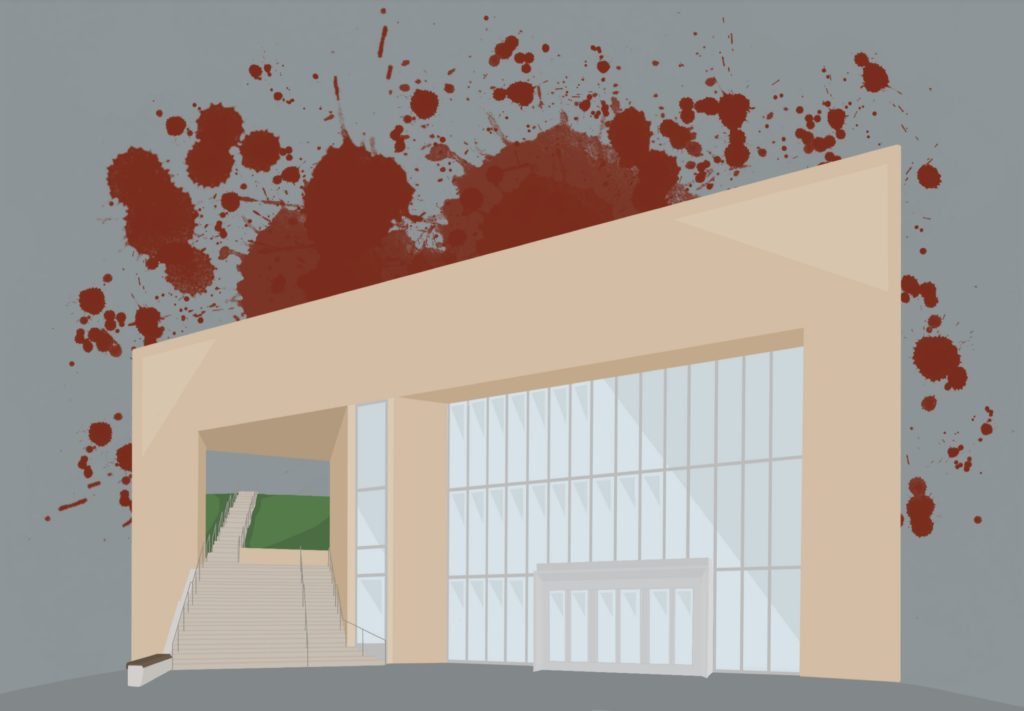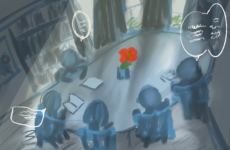
Graphic by Sesame Gaetsoloe/The Choate News
With Covid-19 scattering Choate students across the world, the Choate administration has faced a new problem: How can we make the daily schedule convenient for as many students as possible while our community is spread across various time zones?
The short-term solution was to start classes later, allowing students from the West Coast to start classes at 7:00 a.m. instead of 5:00 a.m., while pushing start times for those in Europe to the afternoon. The recent schedule shuffle has allowed students in Asia to have fewer classes after midnight. With these new schedule changes, students on the East Coast now attend classes starting at 10:00 a.m. — and it’s amazing.
Even before the current crisis, I had argued for pushing back class start times by rearranging the schedule to put conference block first. Scientific evidence supports later start times, and we can now use the virtual class schedule as the trial run for a delayed schedule. Once we return to regular, in-person classes — whenever that may be — we can greatly improve students’ mental health and overall well-being by starting classes later than 8:00 a.m.
Although we’re no longer physically at school, the workload we are all used to hasn’t completely disappeared. Still, because of later start times, I’ve found that I can stay up late to complete homework without worrying about being exhausted the next day.
Criticism of pushing back start times often sounds something like, “Students will just stay up later, and no one will get more sleep.” While this may sometimes be the case, it’s scientifically proven that after puberty, adolescents’ circadian rhythms are lengthened, making them less sensitive to morning light compared to other age groups. Therefore, adolescents naturally fall asleep later and wake up later than both adults and children, as they are biologically more sensitive to morning light. As University of Washington Professor Horacio de la Iglesia has put it, “To ask a teen to be up and alert at 7:30 a.m. is like asking an adult to be active and alert at 5:30 a.m.”
To be clear, I’m not advocating for classes to start at 10:00 a.m., as our usual 70-minute blocks and sports schedule would make that impossible. Instead, I believe we should move the conference block to the beginning of the day, allowing students to have their first classes 30 minutes later, but still have the opportunity to meet with teachers as needed.
While this may seem like a trivial change, giving students the option to sleep in 30 minutes later would serve as an excellent first step in improving general health and well-being on campus. This adjustment would also return the Thursday sleep-in to its former glory, something universally enjoyed by Choate students before conference block was moved to after the second block of the day.
Some teachers may worry that students might choose to sleep through conference block instead of attending scheduled meetings. However, our current online schedule effectively has a conference block at the beginning of the day through morning office hours, and students have utilized that time for extra help or meetings.
Furthermore, having conference at the beginning of the day would actually give students more opportunities to meet with teachers prior to tests or other assessments. With the current in-person daily schedule, there is a two in five chance that a student’s test will happen before conference, eliminating the opportunity for students to meet with a teacher to ask a last-minute clarifying question.
Ultimately, as a student living on the East Coast, the online schedule has boosted my energy throughout the day. Despite the peculiarity of staying home for school, the increased amount of sleep the new schedule provides has definitely improved my overall wellness. In the past few years, Choate has made great strides in prioritizing students’ wellness, and the next step in this health journey should be to keep in place this spring’s later start times whenever we return to campus.




